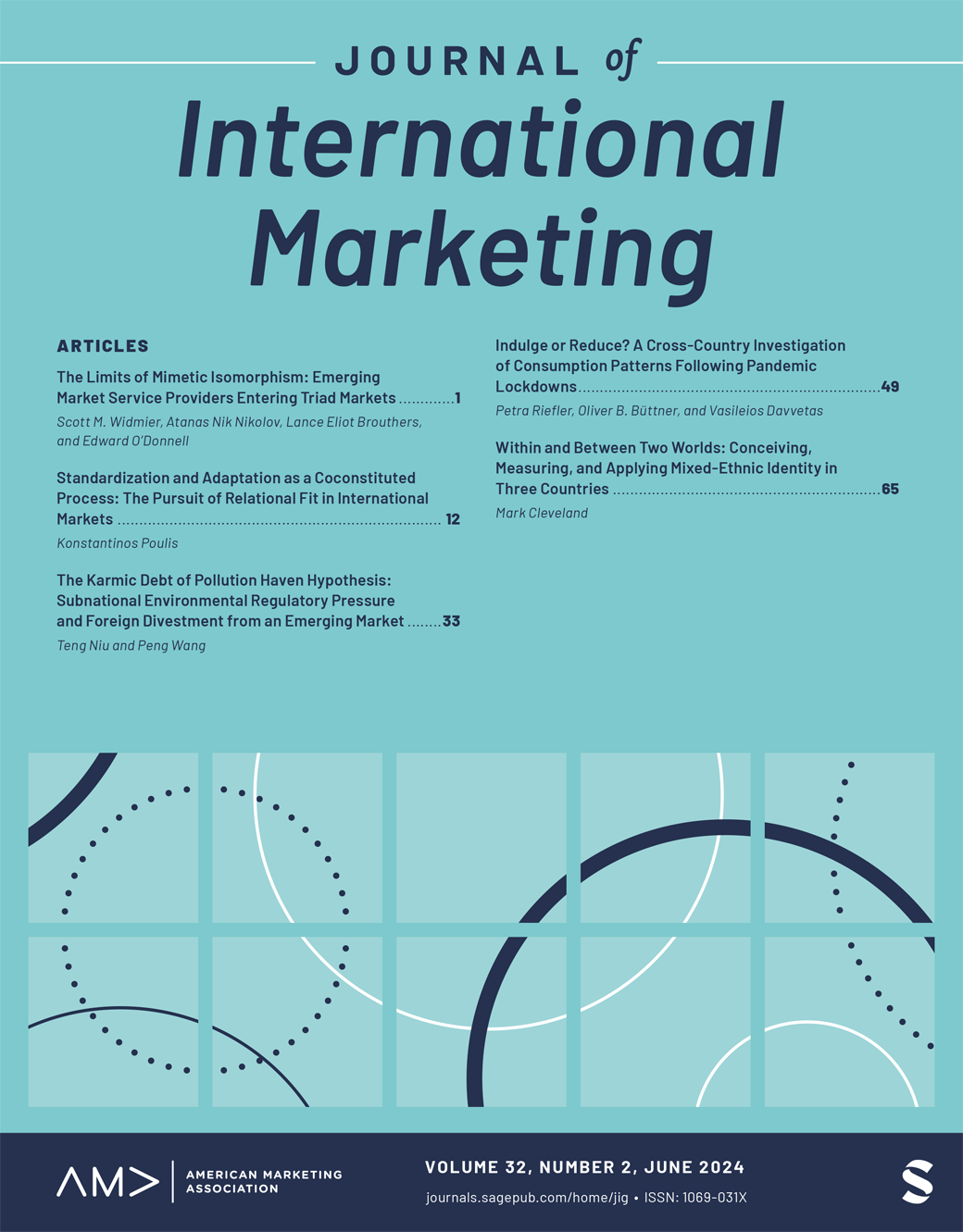Vaccination Acceptance Across Cultures: The Roles of Collectivism, Empathy, and Homophily
IF 4.9
2区 管理学
Q1 BUSINESS
引用次数: 16
Abstract
How does culture influence vaccination acceptance? This is an important question facing managers, policy makers, and global health organizations. Even with effective vaccines for highly contagious diseases, humankind remains at risk from vaccine hesitancy. The authors conduct a large-scale multilevel analysis of more than 400,000 survey respondents and find that COVID-19 vaccination intentions are higher among people from countries that are higher in cultural collectivism (Study 1). Follow-up studies indicate that vaccination acceptance is higher among people who endorse collectivistic values because they feel more empathy for those afflicted by the disease (Studies 2a, 2b, 3), especially when victims of the disease have characteristics (e.g., political affiliation, lifestyle, personality) similar to themselves (Study 3). To encourage vaccination acceptance, the authors suggest promoting collectivistic values and empathic concern, as well as homophily through the portrayal of victims with characteristics like those hesitant to accept vaccination.跨文化接受疫苗接种:集体主义、同理心和同性恋的作用
文化如何影响疫苗接种的接受度?这是管理者、政策制定者和全球卫生组织面临的一个重要问题。即使有针对高传染性疾病的有效疫苗,人类仍然面临疫苗犹豫的风险。作者对40多万调查对象进行了大规模多层次分析,发现新冠肺炎疫苗接种意愿在文化集体主义程度较高的国家更高(研究1)。后续研究表明,支持集体主义价值观的人对疫苗接种的接受度更高,因为他们对疾病患者更有同情心(研究2a、2b、3),尤其是当疾病患者具有与自己相似的特征(如政治派别、生活方式、性格)时(研究3)。为了鼓励接受疫苗接种,作者建议通过塑造具有犹豫是否接受疫苗接种等特征的受害者来宣传集体主义价值观和同理心,以及同性恋。
本文章由计算机程序翻译,如有差异,请以英文原文为准。
求助全文
约1分钟内获得全文
求助全文
来源期刊

Journal of International Marketing
BUSINESS-
CiteScore
8.70
自引率
17.20%
发文量
28
期刊介绍:
As the globalization of markets continues at a rapid pace, business practitioners and educators alike face the challenge of staying current with the developments. Marketing managers require a source of new information and insights on international business events. International marketing educators require a forum for disseminating their thoughts and research findings. Journal of International Marketing(JIM) is an international, peer-reviewed journal dedicated to advancing international marketing practice, research, and theory. Contributions addressing any aspect of international marketing management are published each quarter.
 求助内容:
求助内容: 应助结果提醒方式:
应助结果提醒方式:


